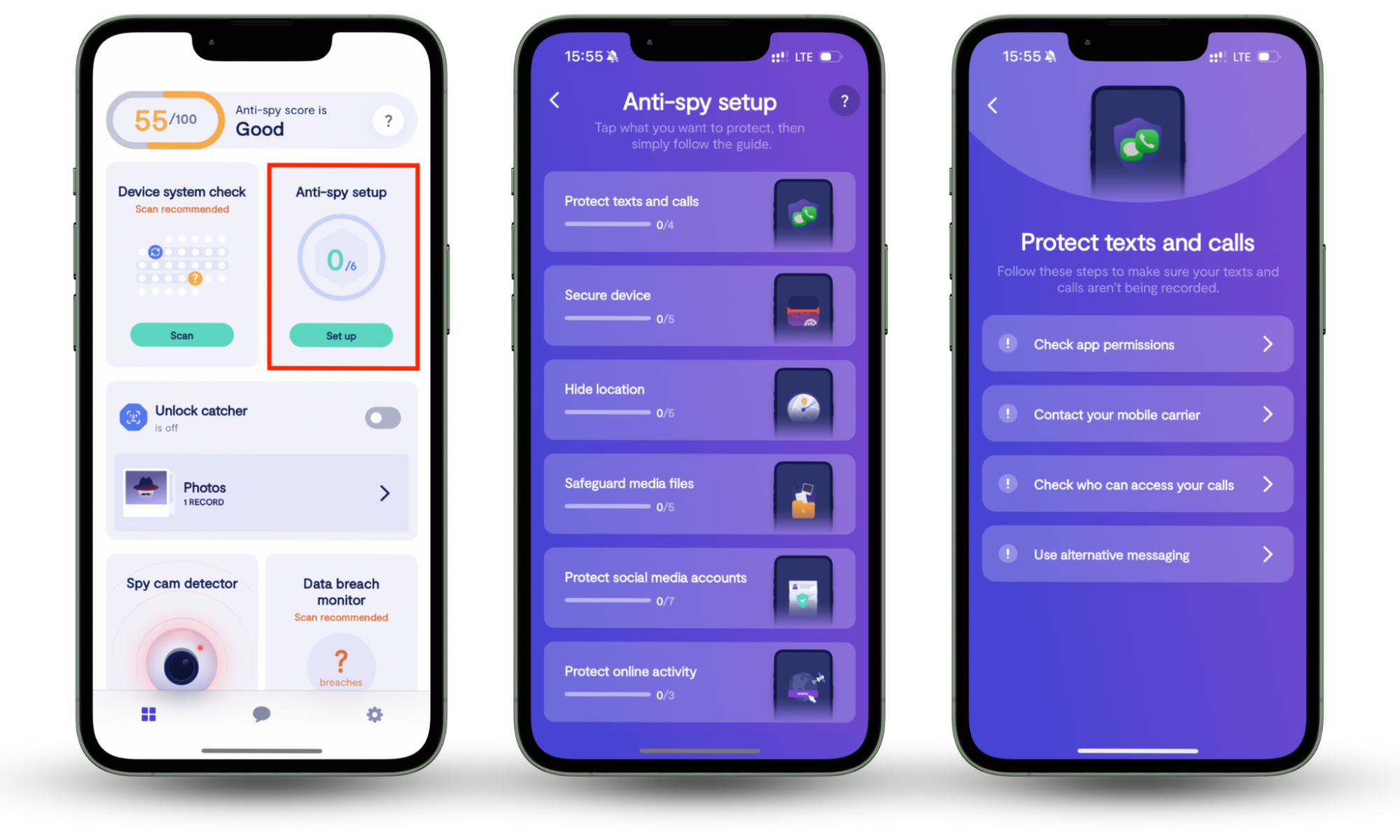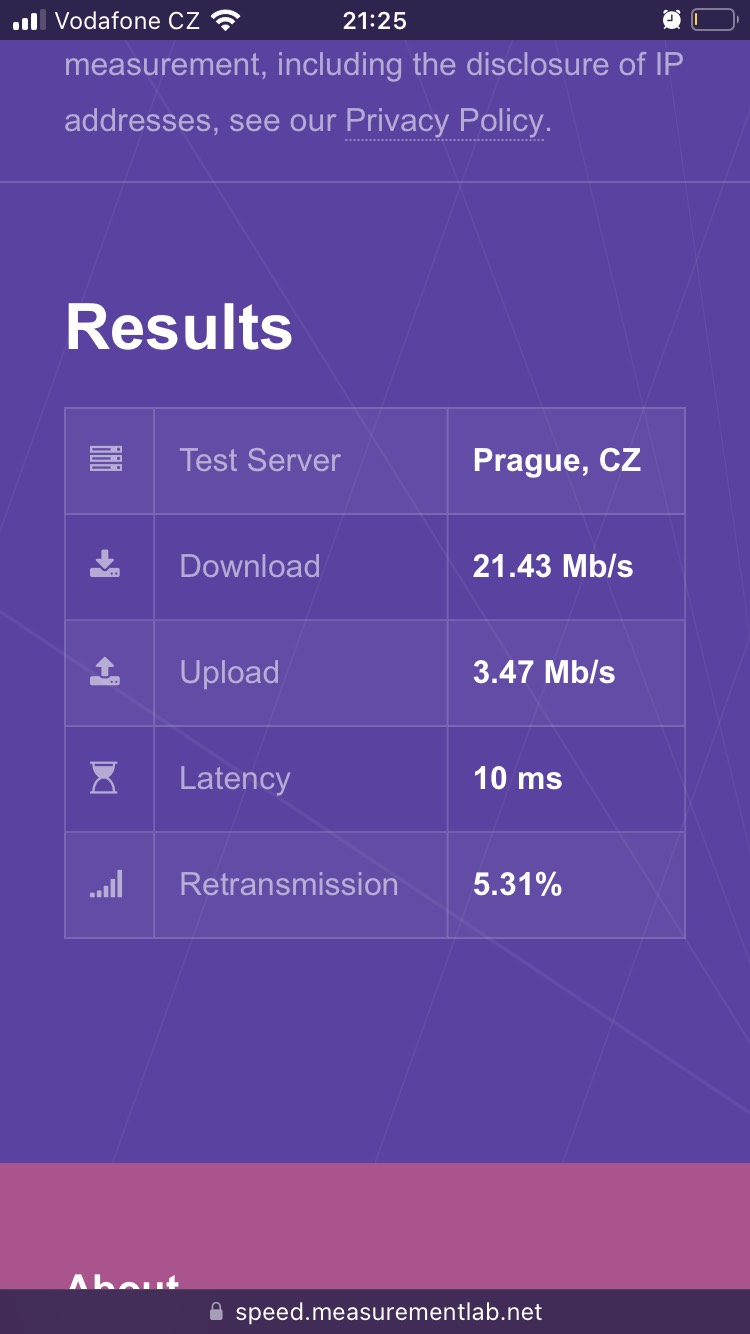Table of contents
- What is ISP throttling?
- How does ISP throttling work?
- Why do ISPs throttle the internet?
- Network congestion
- Data caps
- Paid prioritization
- Censorship
- How to stop ISP throttling?
- How to test if your internet is being throttled?
- Perform a speed test
- Speed test with a VPN
- How does a VPN solve throttling issues?
- How to stop ISP throttling without a VPN?
- Does bandwidth throttling affect mobile data
- Should you be concerned about ISP throttling
- Is ISP throttling illegal
- How to avoid ISP throttling
What is ISP throttling?
ISP throttling is the act of reducing your internet bandwidth or speeds by your internet service provider (ISP). It's used by your ISP to regulate network traffic, limit your data usage, or even deter you from visiting certain websites. ISP throttling often results in internet speeds that are slower than what service providers advertise to their customers.
Your ISP may have legitimate reasons for internet throttling. There are some examples of ISP throttling that could improve your internet experience. On the other hand, ISPs can use throttling to prioritize certain customers and influence your internet activity.
Here’s why ISPs use throttling:
- Stop network congestion
- Enforce data caps
- Paid prioritization
- Censorship
Internet throttling usage varies amongst ISPs. Generally, mobile data providers are more likely to use ISP throttling. Despite pressures on ISPs, they don’t usually inform their customers when they engage in it.
Are you wondering what internet throttling is compared to ISP throttling? The terms are interchangeable.
How does ISP throttling work?
ISP throttling works by limiting the speed of data that’s either ingoing to your device or outgoing to a network. Throttling can also work by limiting the total number of data sent or received at a given time — this is known as a data cap. For end users, the result is an overall slower internet experience.
ISP throttling affects speed and bandwidth. Here’s the difference:
- Connection Speed: This refers to the rate of ingoing network traffic to your device and outgoing traffic to the internet. Gauged in Mbps.
- Bandwidth Volume: This refers to the overall volume of data that can be transmitted over an internet connection at a set interval of time.
Why do ISPs throttle the internet?
ISPs throttle the internet primarily to help their networks run more efficiently and limit your data usage. However, your ISP can also use it to influence your internet activity and turn a profit. There are numerous reasons why ISPs throttle your internet — knowing them will help you detect if you’ve been targeted.
Here’s why ISPs throttle your internet:
Network congestion
A network flooded with requests will result in reduced speeds and limited access. Your ISP may use internet throttling to regulate crowded networks. By limiting bandwidth for some users, it enables more people to connect to a given network and overall better speeds for all.
Internet throttling is also used to limit certain high-bandwidth activities like downloading torrents and streaming. Even if you pay for a certain amount of bandwidth, your ISP may throttle your internet if they deem your activity is straining their network.
Data caps
ISPs allot a fixed amount of mobile data to you based on your plan. If you are nearing your monthly limit, your ISP may cap your data — by throttling your internet — to conserve what’s left. This can ultimately be helpful for preserving your remaining data.
Paid prioritization
Third-party companies like Amazon and Netflix can have their network traffic prioritized by paying extra to your ISP — giving them fast lanes direct to the servers. Unless you're also a prioritized customer, this results in throttling when connecting to sites and services that use fast lanes.
Net neutrality is the principle that all internet traffic should be treated equally. Many countries — like the United States, China, and France — don’t have net neutrality laws. In these countries, a company can pay an ISP to throttle internet traffic on competitor services — while encouraging traffic to their own services.
Censorship
In some countries, ISPs are state-owned or closely associated with the government. In places like China and Iran, the government closely monitors internet traffic and uses throttling to censor unwanted content and ultimately control its population.
How to stop ISP throttling?
You can’t outright stop ISP throttling — but you can avoid it. Understanding when and why your ISP uses throttling is a start. From there, you can use tools and strategies so that you can get the most out of the internet service that you pay for.
Here’s how to stop internet throttling:
- Use a VPN. A Virtual Private Network (VPN) functions like a private tunnel between your device and the internet. It’s an encrypted connection, so no one can monitor your activity — even your ISP. Though a VPN can’t stop data caps or network regulations, it will evade activity-based throttling.
VPNs are great for boosting your privacy, but to really level up your security, you'll want to team it up with an anti-spyware solution. That's where Clario Anti Spy steps in. It's an easy-to-use tool that helps you protect your device from spying and stalking.
Here's how to run an Anti-spy setup with Clario Anti Spy:
- Download Clairo Anti Spy and subscribe to create an account.
- Tap Setup under Anti-spy setup.
- Work through the available categories——e.g, Secure device, Protect social media accounts, Protect online activity—to boost your privacy.
- Tap the Messages icon to connect to a security expert if you need help.

Clario Anti Spy can also detect hidden device jailbreaks or rooting, aelert you to email and password breaches, and even take a photo of anyone trying to unlock your phone without permission. If you're using Android, you'll also be able to scan for spyware and hide your real location with a virtual one—this helps you stay safe even when you're not using a VPN.
2. Upgrade your data plan. Though a pricier option, by upgrading your data plan, you can bypass ISP throttling without a VPN. An unlimited or higher monthly data allotment means no more data caps, plus a premium plan could prioritize your internet traffic by putting you in your ISP’s fast lane.
3. Monitor your data. By keeping track of your monthly data usage, your ISP won’t have to use a data cap. Try to avoid activities that eat a lot of data, like streaming videos. Use public Wi-Fi, if you can — though be wary of its dangers.
4. Switch ISPs: If you’re unhappy with your ISP and its policies, look for a new one with better network management policies. Understand what you need from a service provider, calculate your monthly data usage, and shop around. Just know, you may incur an “exit fee,” and your new ISP may still throttle to regulate network traffic.
How to test if your internet is being throttled?
There’s no direct way to test if your internet is being throttled. ISPs are secretive about throttling — plus, other factors besides throttling can slow your speeds. But although there’s no specific throttling test, there are indirect ways to tell if your internet is being throttled.
Here’s how to test if your internet is being throttled:
Perform a speed test
A free speed test, like M-Lab’s Speed Test, will measure your current internet speed. You can compare the result of this test with your data plan to determine if you are getting the speeds that you pay for. Note: this isn’t definitive evidence of ISP throttling.

Your current internet speed can fluctuate throughout the day. So, run multiple tests at different times and use the results to calculate an average internet speed.
Speed test with a VPN
After running an initial speed test, connect to a VPN and run another speed test. A VPN hides your browsing activity from your IPS, helping you evade throttling based on your online activity.
If speed test results with a VPN are markedly different from results without a VPN, you may be experiencing ISP throttling.
How does a VPN solve throttling issues?
A VPN solves activity-based throttling issues by hiding your online activity from your ISP. VPNs work by encrypting your IP address, which stops your ISP from monitoring your online activity. When your ISP can’t see which websites and services you use, they can’t throttle your internet based on your activity.
How to stop ISP throttling without a VPN?
You can bypass ISP throttling without a VPN by using a web proxy that encrypts your traffic. Similar to a VPN, an encrypted web proxy hides your IP address from the websites you visit and your ISP, so they can’t monitor your online activity.
Though it may be effective, the web proxy method has downsides. It only works if your proxy supports encryption — and proxies that offer encryption are rare. A manual set-up is possible, but the process can be challenging for someone with no technical background. Alternatively, many VPN services offer encrypted proxies automatically.
Does bandwidth throttling affect mobile data
Yes, bandwidth throttling can affect mobile data by enforcing data caps, which place limits on your data usage. In fact, you’re more likely to experience ISP throttling over a mobile network compared to a home Wi-Fi or wired broadband network.
Mobile data providers can use a soft cap to limit high-bandwidth activities, like streaming. Soft caps work by throttling your speeds once you use a certain amount of your monthly data. This isn’t necessarily bad, since it can help conserve your remaining data for the month.
A VPN hides your outgoing traffic from your ISP, so it can help you avoid bandwidth throttling based on your mobile activity. But be aware that VPN usage itself uses mobile data.
Should you be concerned about ISP throttling
Yes and no. You should be concerned about ISP throttling if your speeds are significantly less than you pay for or if it’s limiting you from a free and open internet. But throttling for network regulation or helping you manage data usage is standard and can be useful.
Your ISP is most likely a profit-driven business. Besides providing you with internet service, it can also be involved with taking money from third-party companies to influence what websites and services you engage in. Net neutrality laws fight for an open internet that’s free from the influence of big business — but these laws are not universally accepted.
If your country doesn't have net neutrality laws, you could be experiencing throttling paid for by corporate profiteering. You can try switching to a fairer ISP. Or use a VPN service, which lets you evade ISP throttling based on paid prioritization by hiding your internet activity.
Is ISP throttling illegal
ISP throttling is not illegal. In the past, net neutrality laws prevented third-party businesses from influencing the internet traffic of ISPs. Today, many countries, like the USA, have repealed these laws. With that said, some examples of ISP throttling — based on network regulation and soft data caps — can be beneficial to end users overall.
How to avoid ISP throttling
Though it’s difficult to completely avoid all forms of ISP throttling, a VPN is your best bet.
A VPN is the best way you can stop internet throttling, but it offers much more. It helps prevent personal data theft, which could result in further malicious activity by hackers. VPNs also evade content restrictions, giving you wider access to all the internet has to offer. For even more comprehensive protection, combine your VPN with Clario Anti Spy.


